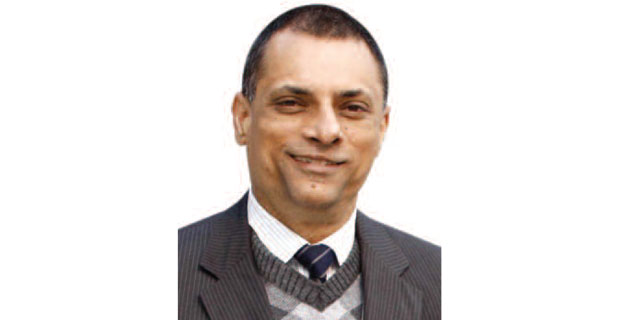Editor’s Desk
Suella Braverman, the sacked British Home Secretary, is no stranger to controversy. In November 2023, UK Prime Minister Rishi Sunak took the hard decision of removing her from his cabinet. He spoke to her over the phone and asked her to step down. Braverman’s principal faults—being outspoken, especially on immigration issues, and being politically incorrect! This is the second time that Braverman has lost her job as the UK’s Home Secretary, the earlier one was when she was forced to resign by former PM Liz Truss on October 19, 2022 for breaching a ministerial code by sharing an official document from her personal email with a Parliamentary colleague.
This time around the reasons for her ouster were different, but controversial nonetheless. In a signed article in The Times on November 8 the 43-year-old former attorney general for England and Wales wrote that there had been a perception that senior police officers play favorites when it comes to protestors. She was, of course, referring to the police’s handling of both the pro-Israel and pro-Palestine protestors in the UK following the Israel-Hamas war. She said the pro-Palestinian protests amounted to hate marches and the British police, she said, were tougher on right-wing extremists than they were on pro-Palestinian “mobs.”
Born to parents of Indian descent—her mother is from Mauritius and father from Kenya, Braverman raises several interesting points in her letter to PM Sunak. Coming from a Home Secretary with inside knowledge of the system that runs Britain, they do merit looking into very closely. She accuses Sunak of betrayal by failing to keep his promises over controlling illegal immigration or responding aptly to extremism on the streets.
Not surprisingly, Braverman’s points are ones that the British public has been grappling with through an uneasy period of protests fuelled by the Israel-Hamas war in Gaza. Matthew Goodwin, a professor of politics at the University of Kent, and a pollster, says many people in Britain feel quite scared by the pro-Palestine protestors, particularly in UK cities such as London, Birmingham, Manchester, Edinburgh and elsewhere because of those who have failed to condemn Hamas’s attack on October 7, 2023 on Israelites with any degree of enthusiasm. Neither have the left-leaning politicians helped by expressing their unequivocal support for Palestine.
The principal findings of his polls are that the majority of the British are today questioning the intent of the leadership in the country in the wake of the relative leniency displayed towards pro-Palestine supporters, 66 percent say that Hamas is a terrorist organization, while only six percent say they aren’t. Fifteen percent of Londoners, however, do not view Hamas as a terrorist group which Goodwin finds appalling.
Goodwin adds that the UK’s experiments with mass immigration are clearly failing. There are areas in the country where ethnic groups are not following British laws and are choosing segregation over integration. That could well be a foreboding for Britain. “The worry is the speed and scale at which we transform this country while not integrating those that are arriving,” he says. Nigel Farage, a British broadcaster and former politician, says that what emerges from the recent spate of protests is that there is a permissive environment against the Jewish community which is tired of being treated as second class citizens.
By stirring the hornet’s nest, Suellva Braverman has certainly set tongues wagging, and now everyday at public forums the question on policies about immigration and integration are being asked.
Elsewhere in the magazine there are several other interesting topics to read. We hope you enjoy navigating through them.
Sayantan Chakravarty
sayantanc@gmail.com











Comments.